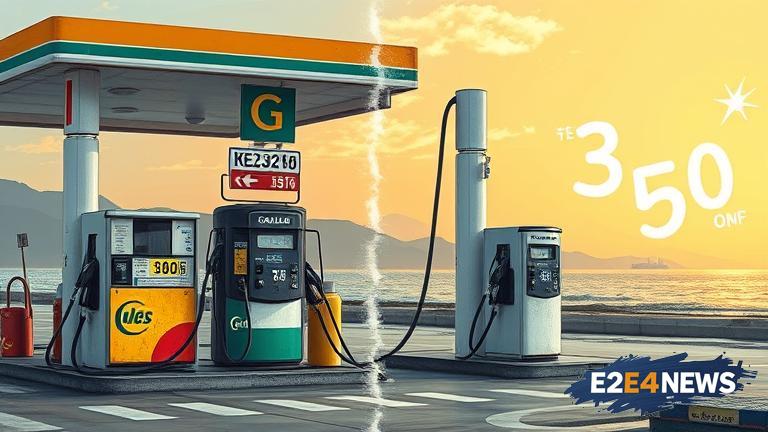The recent drop in oil prices has not been reflected in the cost of gasoline on Greek islands, with prices remaining stubbornly above €2. This disparity has led to accusations of holiday profiteering, as tourists and locals alike are forced to pay inflated prices for fuel. The situation is particularly concerning on popular tourist destinations, where the high cost of gasoline is adding to the already significant expenses associated with traveling to and from the islands. The Greek government has been urged to take action to address the issue, with some calling for increased regulation of the fuel market to prevent price gouging. However, others argue that the high prices are a result of the unique logistical challenges associated with supplying fuel to the islands, including the need for transportation by sea. Despite these challenges, many are calling for greater transparency and accountability in the fuel pricing process, to ensure that consumers are not being taken advantage of. The issue is not limited to Greece, as similar disparities in fuel prices have been reported in other island nations and tourist destinations around the world. As the summer holiday season reaches its peak, the issue of fuel prices on Greek islands is likely to remain a major concern for tourists and locals alike. The high cost of gasoline is not only a financial burden, but also a environmental concern, as it may discourage the use of more sustainable transportation options. In addition, the disparity in fuel prices may also have a negative impact on the local economy, as tourists may be less likely to visit the islands if they perceive the cost of fuel as being too high. The Greek government has announced plans to investigate the issue and take steps to address it, but it remains to be seen what concrete actions will be taken. In the meantime, tourists and locals are advised to be aware of the high fuel prices and to plan accordingly, by considering alternative transportation options or seeking out fuel stations that offer more competitive prices. The issue of fuel prices on Greek islands is a complex one, and it will likely require a multifaceted solution that takes into account the unique challenges and circumstances of the region. As the situation continues to evolve, it is likely that we will see increased scrutiny of the fuel market and calls for greater transparency and accountability. The high cost of gasoline on Greek islands is a major concern, and it is essential that steps are taken to address it in a fair and sustainable manner. The Greek government must work to ensure that the fuel market is operating in a fair and transparent manner, and that consumers are not being taken advantage of. This may involve increased regulation of the fuel market, as well as efforts to promote more sustainable transportation options. By taking a proactive and comprehensive approach to addressing the issue of fuel prices on Greek islands, it is possible to create a more sustainable and equitable transportation system that benefits both tourists and locals. The situation is being closely monitored by consumer advocacy groups and government agencies, and it is likely that we will see further developments in the coming weeks and months. As the summer holiday season draws to a close, it is essential that the issue of fuel prices on Greek islands is addressed in a fair and sustainable manner, to ensure that the region remains a popular and affordable destination for tourists. The high cost of gasoline is a major concern, and it is essential that steps are taken to address it as soon as possible. The Greek government must work to promote a more sustainable and equitable transportation system, and to ensure that consumers are not being taken advantage of. By taking a proactive and comprehensive approach to addressing the issue of fuel prices on Greek islands, it is possible to create a better future for tourists and locals alike.
